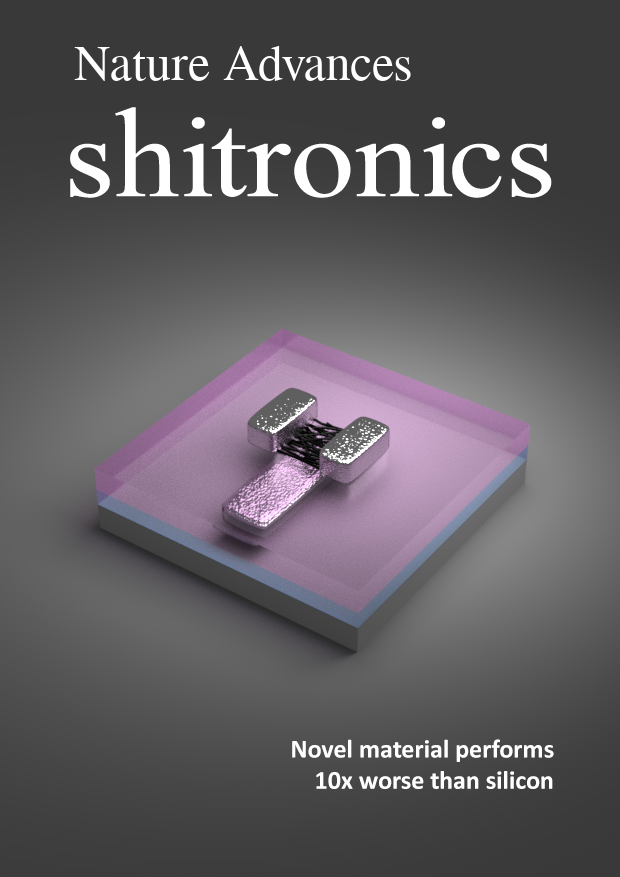Opinions
No, then why would you illegally look at a scientific publication? Reading science that you or the researchers didn't pay for is illegal.
The Editors
Articles
Utilizing new switching physics, we created for the first time a novel three-terminal device that changes electrical current through two terminals depending on the applied voltage on the third terminal.
Time dependent measurements show the device can also remember charge over a period of time. Such devices could be used to replace Silicon FETs in future computers.
B.S. Arnold, R.U. Serious, N.O. Reali, and U.S. Ucker
Utilizing a new neural network design with over 200 billion parameters and the Summit OLCF-4 supercomputer, we successfully identified
all images in the MNIST dataset. Our breakthrough was increasing the size of our network to be larger than amount of training data and
using the test images for training. Such results indicate AI models can learn any function when given the answers.
O.G. Intel and T.Y. Stark
With the advent of pirating scientific research sources like SciHub, publishers have effectively changed their business models to charging researchers
instead of readers to make profits. In this article, we show how this model has effectively combated decreasing profits.
F.U. Nuding, N.O. Tefrom, and P.U. Blishers
Errata
After submission to Nature Advances, we were informed that our devices displayed similar behavior to those made from Silicon, though
with lower performance. Nevertheless, we will keep our article published for other researchers to cite despite our results being complete shit.
B.S. Arnold, R.U. Serious, N.O. Reali, and U.S. Ucker

